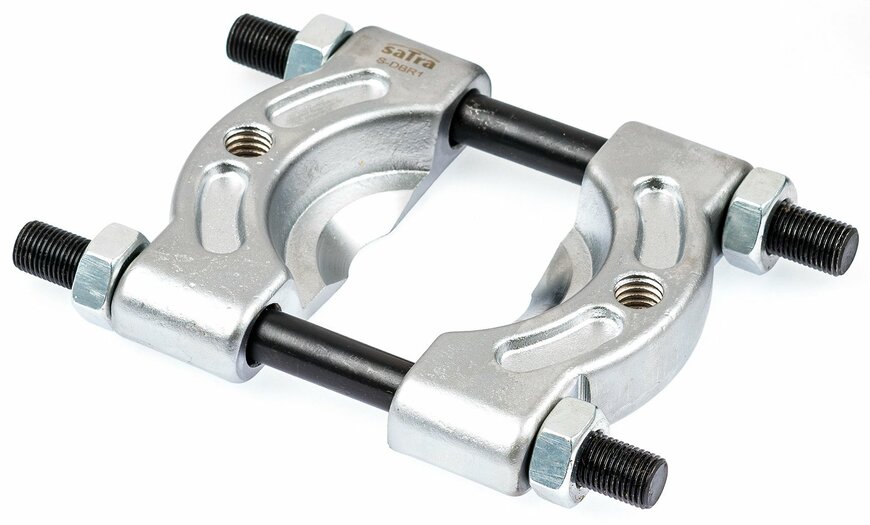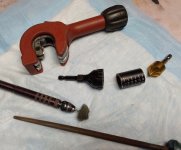I didn’t get a car until I was 49. Until then, I’d depended on BMW motorcycles. A BMW tool kit had a 12-point box wrench with 10 and 12mm ends. Its rigid connection let me clearly feel the change in resistance. When I torqued a cylinder head, I could tell when I’d taken up the elasticity of the gasket.
Threaded connections are designed with elasticity to hold everything tight. A steel car rim is an example. With a lug wrench, you force the steel under the nuts down to the hub, against the elasticity of the steel. It’s torqued when the steel under the nut bottoms out.
I couldn’t feel that point with a lug wrench. They’re pretty springy, and the ones I used had 6-point sockets. A conventional 6-point socket pushes on the corners of a connector, and the corners can flex. A 12-point socket pushes on the flats. With a good 12-point socket and a rigid 24-inch breaker bar, I could feel when a lug nut bottomed out. I proved it with a 1955 Pontiac, a 1973 Cadillac, a 1984 Nissan, and a 1995 Bronco. I’d torque by feel, use tape to mark the tire where the handle was, back off, torque to spec with a torque wrench, and put the breaker bar back on to see where the handle was. It was always over the tape.
BMW tool kits included Heyco 4, 5, 6, and 8mm hex keys, which also provided excellent feel. On my
Aventon, almost every connector has a hex socket, but the folding key set was terrible. It was much too springy to feel what I was doing, and using one handle for all sizes wasn’t good.
I used bits with a 6” ratchet, a 3” ratchet, or a small screwdriver. The front axle was a problem. It was marked 8 to 10 Nm, and that was probably important. It was an alloy bolt with little thread engaged, so I didn’t want to over tighten. Under tightening could allow wobbling between the forks, which could be damaging.
With a bit and ratchet, I didn’t feel any elasticity. I’d never encountered a threaded fastener like that. Remembering how well Heyco hex keys had worked, I bought a set that seemed to meet ISO measurements. I used the H6 to tighten it, and found that I’d applied 9 Nm. I still didn’t feel it taking up elasticity.
I bought a torque wrench for that range. I showed it to a neighbor who’s a machinist. He examined it and asked what it was. He works for tool and die makers. Among mechanical engineers, they are like airline captains among civil pilots.They’d told him to torque by feel using Allen keys.
The point of torquing is to produce clamping force. To know what torque you need, you have to know the fastener’s friction under load. Tool makers can measure the torque necessary for a new fastener, but you can’t count on that fastener to have the same friction if you use it a second time. The change can be worse with stainless and aluminum alloys because they are subject to galling.
On an assembly line, fasteners are new and a machine can be set up to deliver a certain torque. A lot can go wrong if you service a bicycle that way. Lawyers seem to have brought the doctrine to bicycle maintenance.
I bought a set of Stahlwille keys that said DIN ISO 2936. What a difference! I could feel the axle bolt taking up elasticity. It doesn’t start until less than a quarter turn from fully tight, and it’s much less resistance than one would expect from a bolt that size. With a better hex key, I could feel it clearly.
The ISO spec calls for a Rockwell C hardness of 52, and these genuine ISO keys are more rigid than those I bought a few months ago. They’re almost identical to the Heyco keys that came with my motorcycle 55 years ago.
These keys come in a shirt-pocket sized set, especially without out the H10, which isn’t needed. Besides giving me a good feel, the handle lengths would in most cases keep me from over tightening. However, at some locations on the bike, there isn’t room to turn the short arm in a full circle in order to spin a screw out. I could have used a ratchet or screwdriver with bits, but I decided to try ball-end keys.
I bought AMTOVL, made of S2 steel. They feel as rigid as the Stahlwille ones. I was afraid I might over tighten with the longer handles. I tightened the axle by feel, backed off, and used a torque wrench to bring the bolt to the same position. I did it 5 times. Every time, it was within spec. I’m sold.


